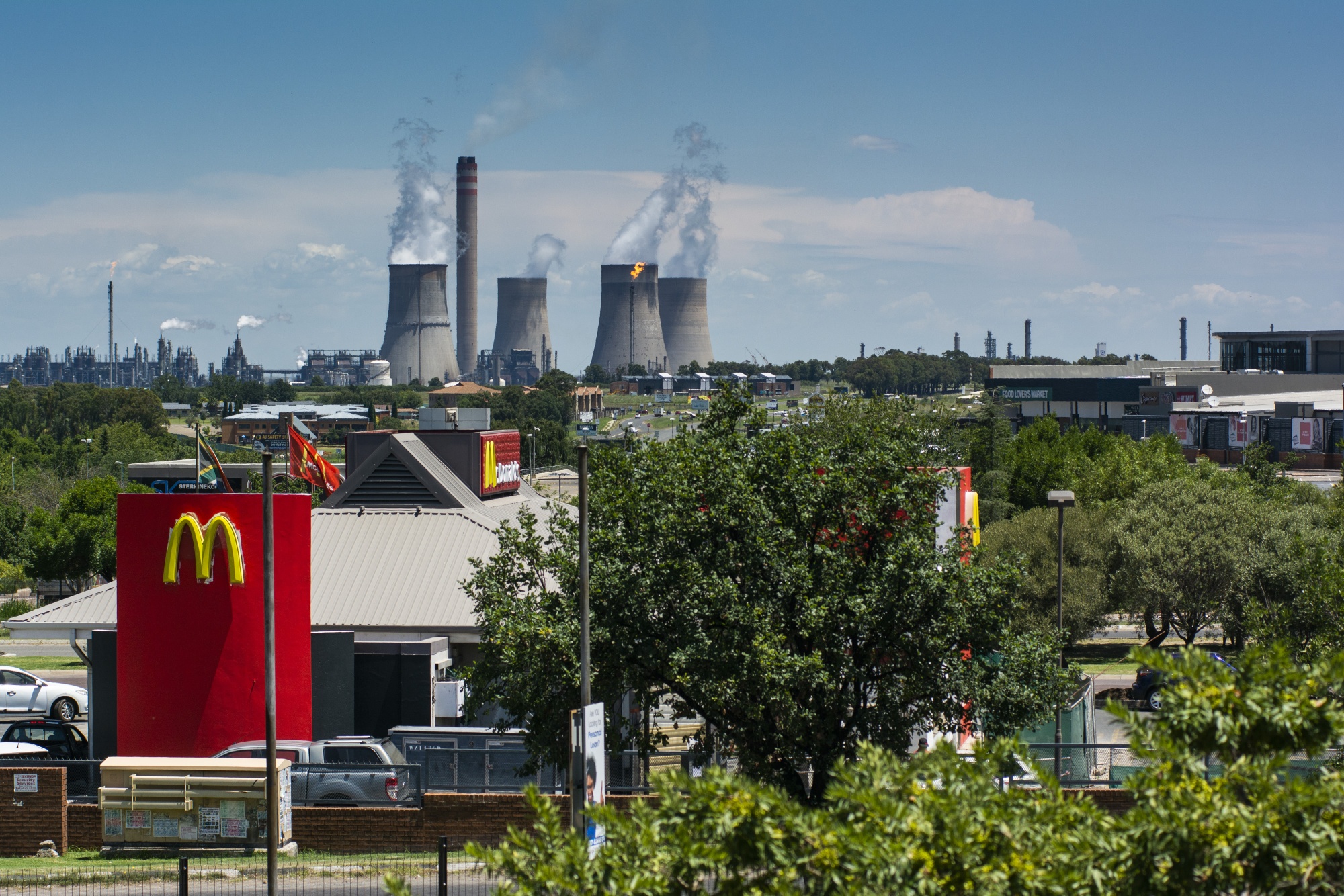World’s Biggest Climate-Warming Gas Site Turns to Green Hydrogen
(Bloomberg) -- Secunda, the South African petrochemicals plant that produces more climate-warming gases than either Portugal or Norway, is looking toward a green future.
The site is the centerpiece of Sasol Ltd.’s plan to slash emissions and focus on the production of so-called green hydrogen, a fuel made using renewable energy, alongside sustainable aviation fuel and chemicals.

Under plans laid out at the company’s capital markets day on Wednesday, Sasol expects to transform Secunda, which currently mainly uses coal to make motor fuels and chemicals, as part of its plan to reach net zero emission status by 2050. That would transform the group into the leading producer of green hydrogen in southern Africa.
The process will be a gradual one, requiring an initial switch from coal to natural gas and then in turn to green hydrogen and sustainable carbon.
“It may be difficult to imagine a future where Secunda” is a major producer of sustainable fuels, said Priscillah Mabelane, Sasol’s executive vice president energy. “We do not underestimate the scale of the challenge ahead of us.”
More stories like this are available on bloomberg.com
©2021 Bloomberg L.P.





